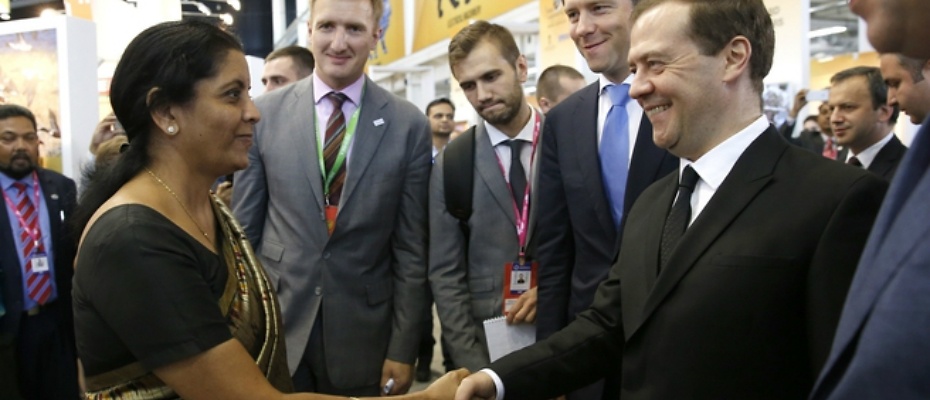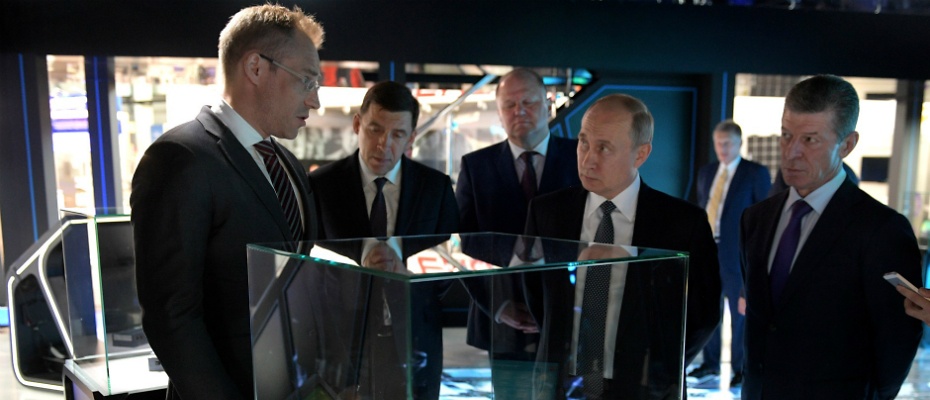
In the business world, you’ve very likely encountered the term “elevator pitch” – perhaps you’ve even been asked for one. Many consider it an essential practice in a world full of distractions and opportunities and a way to relay your ideas to coworkers, investors and partners. Some may even go a step further, claiming the elevator pitch can make or break an entire business. But few talk about it in the context of trade fairs, despite the ideal environment and networking opportunities expos present.
Those who are unfamiliar with the term, probably know the concept in spirit. An elevator pitch is a brief outline of your product or company presented in a catchy way that grabs the interest of your interlocutor. The classic example given to explain the term easily is:
*“Imagine you get on the elevator with a billionaire. How do you convince them to invest in your business before you reach your floor?” *
This hypothetical scenario becomes very real at trade exhibits, where investors and decision-makers have only a few days to speak with hundreds, maybe even thousands of exhibitors.
But how do you build the best possible elevator pitch? How do you convey what you’re about before the person you’re trying to reach, moves on? Thanks to our extensive experience and countless trade fair interactions, we can help you figure these questions out.

Start with an Interesting Introduction
Let’s imagine that you’re a manufacturer of bricks, and you want to present your products at a prestigious trade fair for building technology like Light + Building. You set up your stand, start meeting people and begin talking about your company:
“Hi, we’re UberHard Bricks. We launched 3 years ago and are based in Berlin. Our company makes bricks. There are three varieties of bricks…”
And before you know it, the person you were speaking with has shaken your hand and moved on to a different exhibit. What went wrong?
Well, you gave them too much information, the majority of which they have no real use for. The introduction should fit into one short sentence and include just the most relevant and interesting facts about your company, information that is either useful to the person you are speaking to or memorable and helps you stand out. The Muse offers some good advice on how to build your elevator pitch introduction.
- Start with writing 10 facts about your company and numbering them from one to 10.
- Look at the list again with a critical eye and cross out the least interesting fact, or mark it a different colour.
- Do this until there are only 1-2 facts left which are either essential to partners understanding your business or help distinguish you from other companies like yours.
Simple, but memorable, that is the way to go. Just look at how the founders of Google Larry Page and Sergey Brin pitched their brilliant idea saying they are excited to “organise the world's information and make it universally accessible and useful”. Grab your listener’s attention with a short, bold and vivid statement. With that, you’ve got 1/3 of your elevator pitch. But next comes possibly the most difficult part!

Briefly Explain What You Do
While the first sentence was about introducing yourself and/or your business, the second part is focused on explaining:
- why you’re at the expo,
- what your company is doing,
- what you can offer to potential partners and investors,
- what you need from them in return.
The challenging part is you need to do it all within one or two very brief sentences, and often you’d need to change it on the fly depending on exactly who you’re speaking with. As a result, you’ll probably have more than one explanation you can slide in the middle of your pitch and may need to come up with more on the spot.
Luckily, there’s a technique that can help you with that. It is known as a USP or Unique Selling Proposition. It represents the unique thing you can offer and your competitors can’t. The first step of creating your USP is to know exactly who you’re speaking with, as different people value different things.
For example, if you’re talking with a visitor that happens to be from your country (provided that both of you meet in a foreign nation – say, you’re both from Spain but meet in a trade fair in Germany), your shared nationality might be a better selling point than some feature your product offers. On the other hand, if you’re speaking with a representative from a tech company, it might be a better call to discuss potential integrations with their technology instead of what your product can do on its own.
Knowing who you’re speaking to and how to intrigue them quickly is an important part of the elevator pitch. If you can’t win your interlocutor over in 30 seconds, your goal should be to make them remember you. Don't forget that in conversations people always ask themselves "What’s in it for me?". So focus on the perks they will get rather than emphasising what you give.

Finish with a Call to Action and Give Your Business Card
In the long term, you may want a lot of things from a decision-maker – funding, collaboration, distribution deal, etc. But what do you want in the short term? What do you want from them in the next day or two? Do you want to set up a meeting with them right there at the expo? Do you want them to call you? Would that differ between the different people you speak with, or is it universal across the board? You need to figure this out and incite people with a call to action as your final sentence!
It doesn’t necessarily need to be something complicated. For most of the people you talk with, it’ll probably be something along the lines of “When can I call you next week so we can discuss opportunities?” or “How about we meet in the meeting rooms in 30 minutes?” It’s extremely important to let the person you’re speaking with know what you want from them. You need to make it clear that you’re talking business and not just bragging about how cool your product is. It is essential to give them your card, even if you will meet them again before the trade fair is over. If you are not planning to see them again, present them with other small items that they can browse. For a practical example, let’s say you’re exhibiting at an international wine show like ProWein. You could provide your contacts with a catalogue showcasing the wines you’ve got on sale, something fancier than a leaflet to make it less likely for them to throw it away. If you can afford it, you can even gift them a small bottle of wine (no bigger than 250ml, enough to fit in a coat pocket) so they can bring home some of your produce.
What Can Influence the Quality of Your Pitch
Imagine you have to spend a whole week perfecting your pitch and finally have the foolproof attention-grabbing sales speech. You are confident you have hit all marks, and all you have to do is just show up at the trade fair and enchant your potential partners and clients.
Now, how would you feel if you have to get up at 5 in the morning, after having only a few hours of sleep and travel for about two more just to get to your event location? How can you present your pitch over and over again with the same level of enthusiasm, confidence and positivity if you are sleep-deprived and tired? Moreover, can you do it for three-four days in a row?
No, you can’t. You may be able to keep a brave front for a day, but by the end of the second expo day, you will be done. Yes, you will still recite your perfectly prepared speech, but it will sound more and more robotic. You will stop modifying the middle part and stop paying attention to who you are talking to. No matter how experienced you are, your body can’t withstand being both under serious pressure and sleep-deprived.
The solution is actually pretty simple. Make sure you find accommodation located near the expo centre. Save yourself those 3 or 4 hours of daily travel and use them to rest your body and mind. The way you present your company depends equally on the quality of your speech and the level of charisma you project. That is why when preparing to attend a trade fair, you must put a lot of effort into finding the ideal business accommodation service provider. These agencies will dig deep and present you with adequately located hotels and buildings. You will overwork yourself anyway, so why make it even harder?
Remember, the best salesmen are those who are well-rested and cool-minded. Your elevator pitch should be quick, precise and tailored to the people with whom you’re speaking. Know who you are talking to (politely ask if you’re not sure), decide how to reach them best and keep it below 30 seconds. That way, we guarantee a full schedule following your exhibition.
Wie können wir behilflich sein?
Sind Geschäftsreisekosten steuerlich absetzbar?
Was macht ein Reisebüro?
Ist es günstiger, ein Reisebüro zu beauftragen?